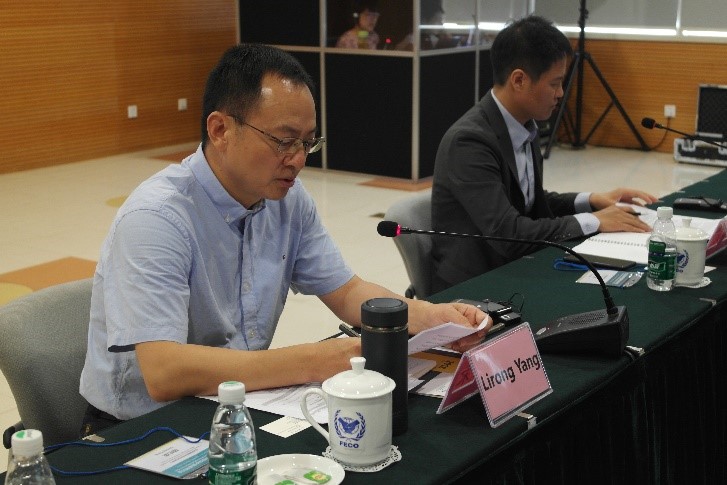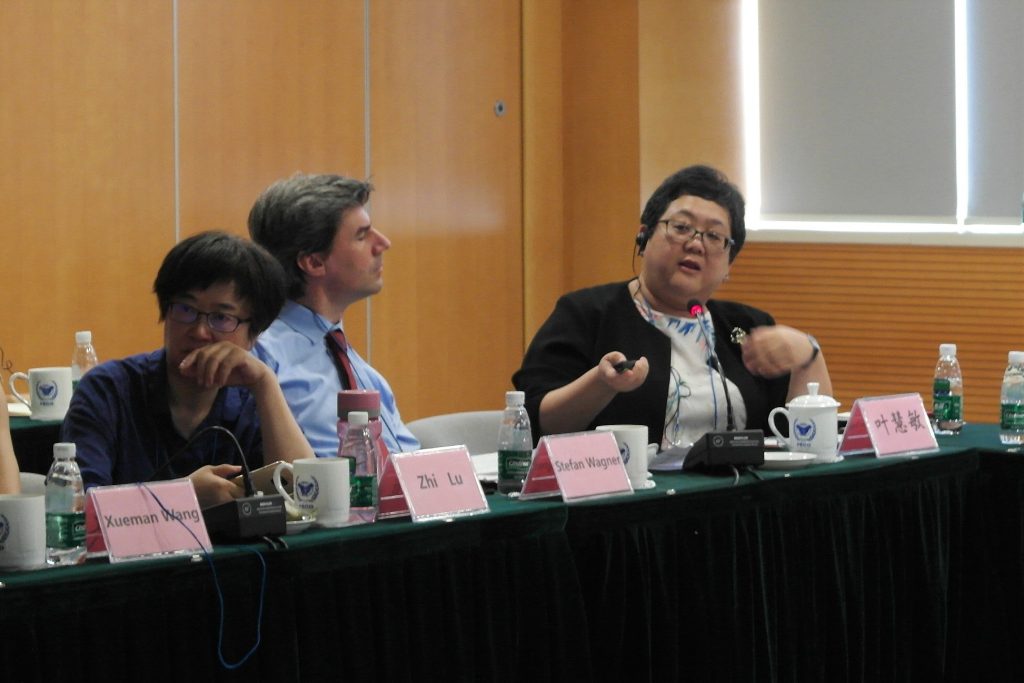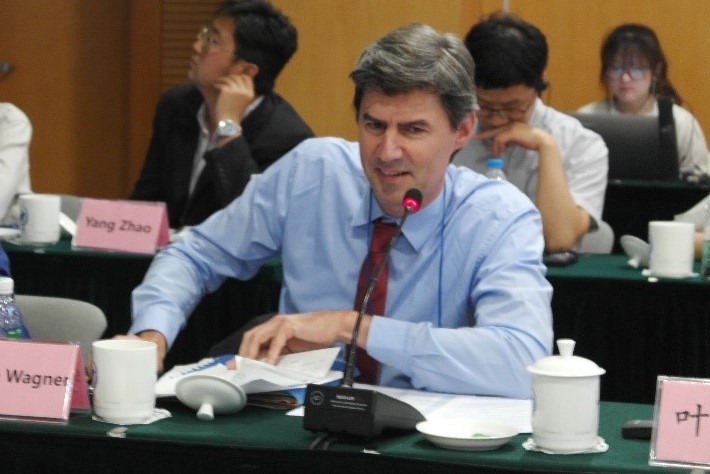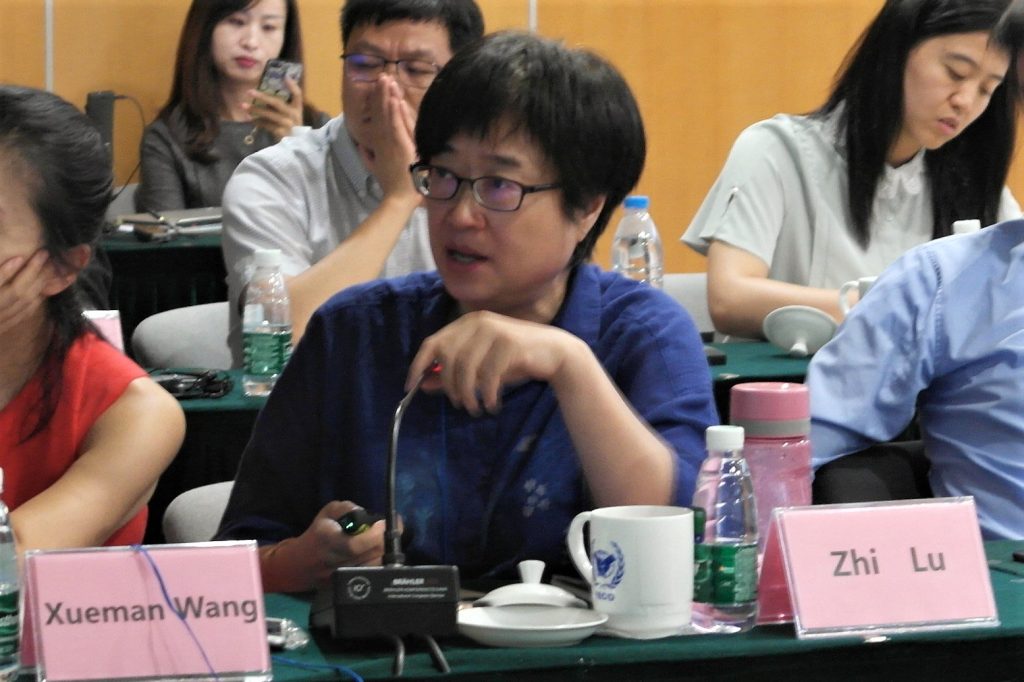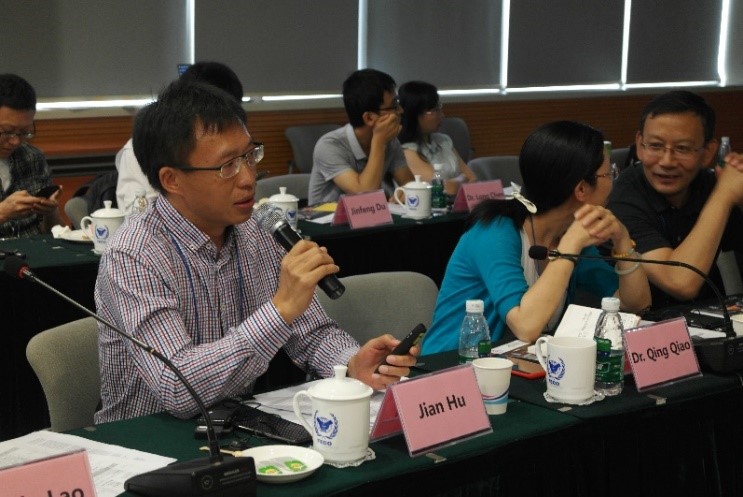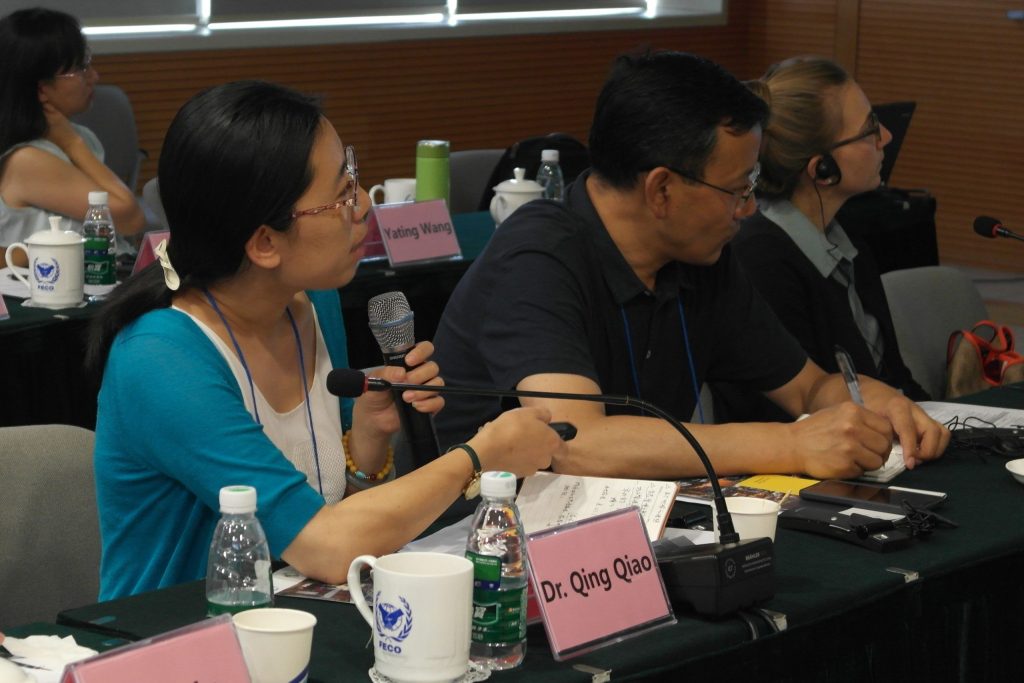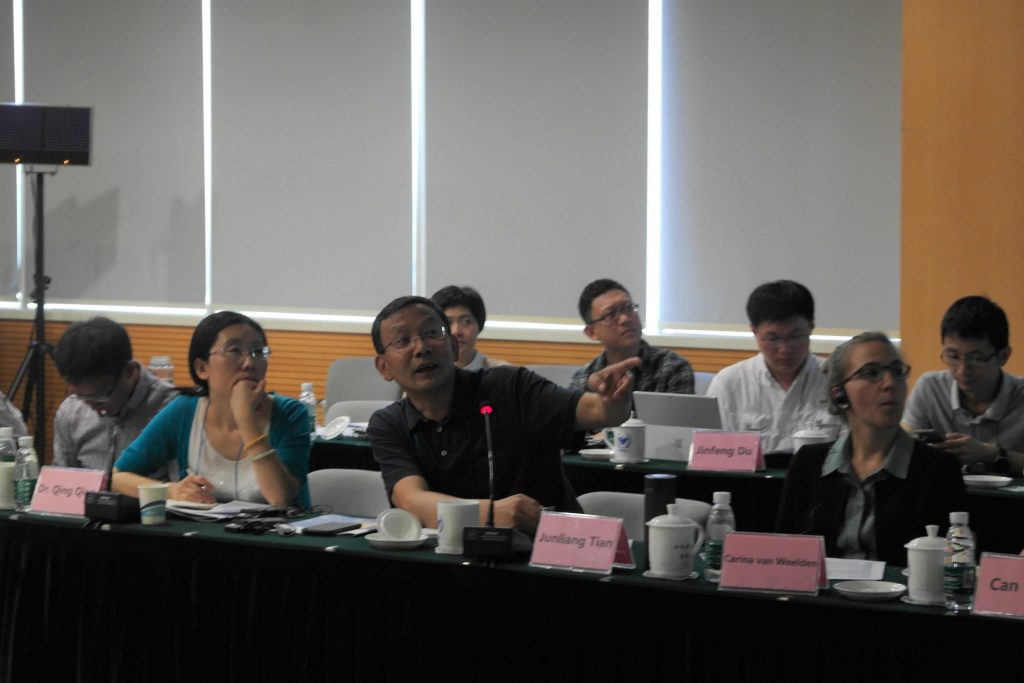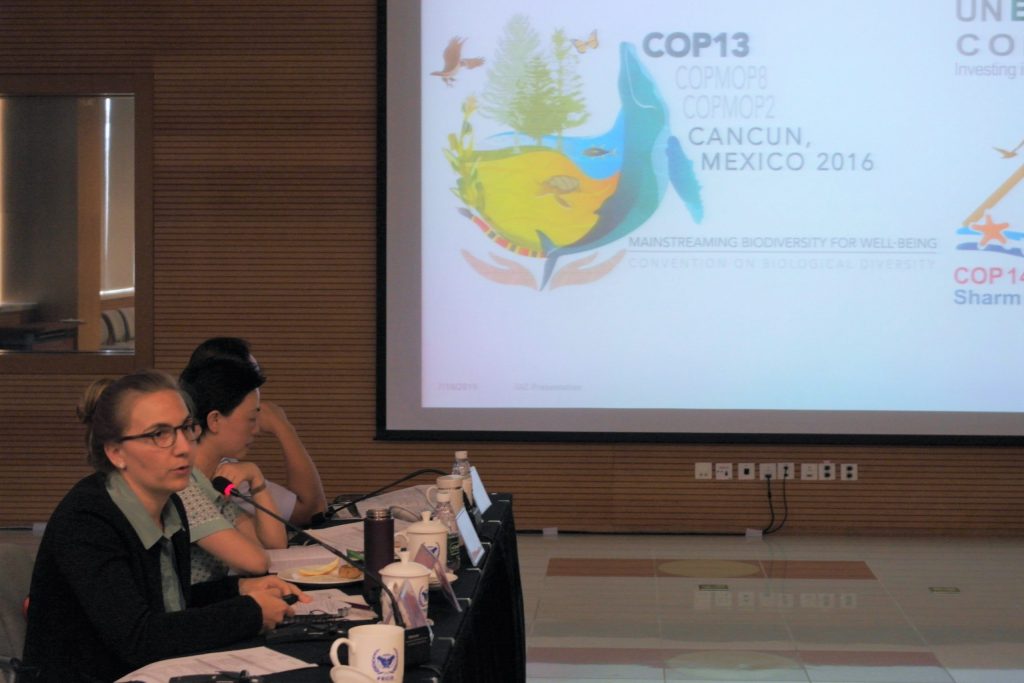Urban Biodiversity Conservation Roundtable held in Beijing

The Roundtable on Urban Biodiversity Actions: Local and Subnational Governments’ Biodiversity Practices and the Road to Post-2020 was successfully held in Beijing on 18 July 2019. Local government representatives from the Yunnan province – host of CBD COP-15 – of China, Singapore, and Bonn of Germany, as well as experts from international organizations including the World Bank and GIZ, gathered on this occasion to exchange their insights on promoting urban biodiversity and ecosystem conservation actions.
Shu Zhu, Regional Director and China Representative of the ICLEI East Asia Secretariat welcomed the guests and participants, and expressed appreciation to the German Federal Agency for Nature Conservation, the Secretariat of the Convention on Biological Diversity, as well as the Foreign Environmental Cooperation Center (FECO) of the Chinese Ministry of Ecology and Environment for their support.
The 15th meeting of the Conference of Parties (COP-15) to the Convention on Biological Diversity (CBD), which is to be held in Kunming, Yunnan Province of China in 2020, will be a landmark conference on global biodiversity conservation. Local and other subnational governments will not only play a critical role in the conference but will also be instrumental in all stages – from formation to implementation – of the post-2020 global biodiversity framework.
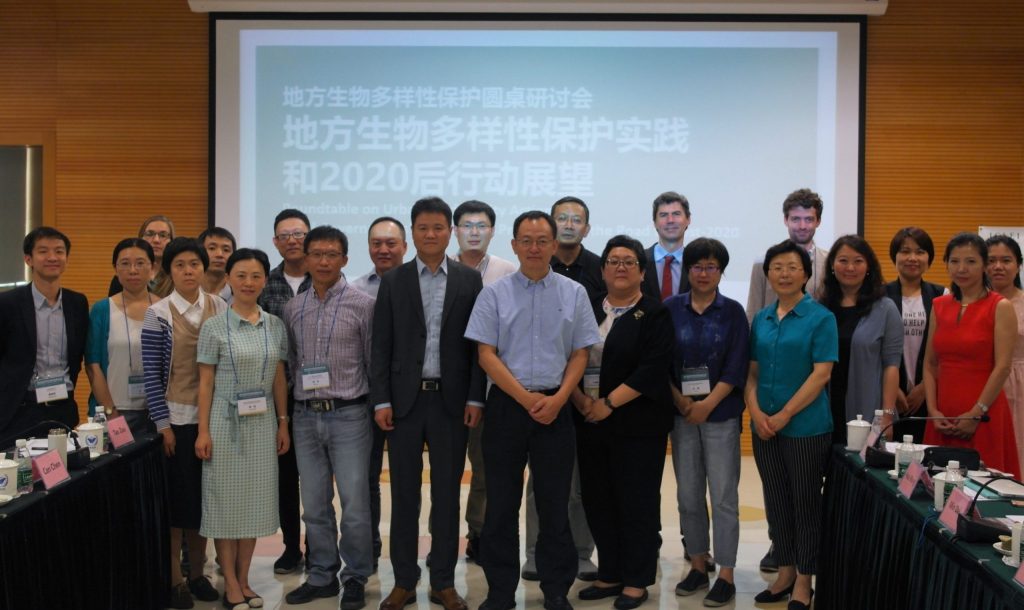
In facilitating local and other subnational governments from China and abroad to feed into and help shape a post-2020 framework, ICLEI East Asia hosted the Roundtable on Urban Biodiversity Actions as a platform for them to share and exchange their experiences on biodiversity conservation at the local level, and together, prospect for further development of local conservation actions in the future.
Lirong Yang from FECO of the Chinese Ministry of Ecology and Environment shared the progress of local biodiversity conservation works in China in his opening speech. According to him, various biodiversity conservation projects have been implemented at the local level throughout the country, and have generated positive results. In addition, FECO has also joined hands with enterprises and social organizations to carry out relevant works in countries along the Belt and Road region.
Dr. Cristiana Pașca Palmer, Secretary-General of the Secretariat of the Convention on Biological Diversity, stated via a written statement, that the ways in which natural resources, sea- and landscapes are managed by local and subnational governments will critically influence whether the ambitious Sustainable Development Goals and other environmental agreements will be achieved.
The Secretariat, in partnership with ICLEI, has been convening Global Biodiversity Summit as parallel events at CBD COP since 2008 and encourages cities and other subnational authorities to use the unique opportunity of COP-15 and its associated 7th Summit of Local and Subnational Governments in Kunming, Yunnan Province of China, to strengthen cooperation and exchange lessons and practices.
Engaging Local Stakeholders for Mainstreaming Biodiversity
With the key decisions on local biodiversity conservation adopted at previous COPs and relevant works implemented by ICLEI over the years, Deping Yang of the ICLEI Beijing Office highlighted the importance of urban and local conservation actions and recommended local governments seize the opportunity of the upcoming COP-15 in China, by taking the lead in hosting and actively participating in the 7th Global Biodiversity Summit of Local and Subnational Governments.
In her presentation titled “Evolving from a Garden City to a City in a Garden to a City in Nature”, Wendy Hwee Min Yap of the Singapore National Parks Board, shared Singapore’s actions and experience with urban biodiversity. According to her, the key elements of the city’s successful transition include good governance, planning and vision, science and innovation, strong leadership and effective implementation, and the cooperation between people and the government in creating a city in nature.
The German city Bonn – host of CBD COP-9 – has long been an active ICLEI Member. Stefan Wagner, who heads the Department of International Affairs and Global Sustainability of Bonn, shared the city’s case in mainstreaming biodiversity in sustainable development, and showcased the nine categories of open space monitoring and land management in moving towards integrated planning of urban spaces, and taking the evaluation of habitat qualities, biodiversity, and climate into consideration.
“Biodiversity and human habitation share similar characteristics,” said Professor Lu Zhi of Peking University. Thus, places with a high density of population and human activities shall not overlook the living space of other organisms. An outstanding example of maintaining good environmental quality and biodiversity in highly populated areas would be the campus of Peking University. With a size of 1 square kilometer, the campus stations over 50,000 people, but has recorded traces of 220 bird species during the past decade – accounting for one-seventh of all bird species in China.
|
|
|
|
|
|
Local Biodiversity Actions: Practices, Challenges, and Opportunities
Yunnan’s biodiversity conservation work is at the forefront of China. Jian Hu from the Nature and Biodiversity Conservation Division of the Yunnan Provincial Ecology and Environmental Bureau presented how the province is integrating biodiversity conservation actions into local economic and social development, and introducing sustainable initiatives without hindering industrial growth.
Dr. Qiao Qing from the Beijing Municipal Research Institute of Environmental Protection introduced the Beijing municipal government’s three priorities in promoting the protection of ecosystems being: the natural reserves, the ecological conservation redlines, and its new city master plan. According to the newly-launched Beijing Urban Master Plan (2016-2035), Beijing divides its landscape into three areas, namely the ecological control zone, the concentrated construction area, and the restricted construction area. The areas are strictly under the Beijing Ecological Control Line and Urban Development Boundary Management Measures. The city government will further promote the project and provide an in-depth analysis of the city’s biodiversity.
Junliang Tian represented the Sanjiangyuan National Park of Qinghai Province, to share the local biodiversity conservation experiences accumulated via the pilot project of the National Park, and cooperated with local governments in building a new community development model by promoting mutual benefits, mutual assistance, and mutual promotion. In addition, he also highlighted the importance of awareness-raising biodiversity conservation among local residents and mobilizing public participation.
Carina van Weelden, Technical Adviser on Biodiversity Conservation of GIZ, presented the cases of participatory governance for biodiversity from Bangladesh, Laos, and the Philippines. She argued that, while cities are encountering a number of biodiversity issues, the most important thing is to ensure that stakeholders of various fields are being engaged in the process of coordinating and consolidating efforts on biodiversity conservation.
|
|
|
|
|
|
Roundtable Discussion
In addition to the presentations prepared by local government representatives and global experts, all the participants also joined a roundtable discussion, which focuses on the following questions:
- What is the role (and benefits) of urban biodiversity and ecosystem services/urban nature in urban sustainability, in the context of the CBD?
- What will be the role, commitments, and ambitions of local and subnational governments for the post-2020 global biodiversity framework? What do they expect and how to build synergy with the Parties?
- What is needed to empower local and subnational governments for further implementing biodiversity actions (e.g. resource mobilization, capacity building, knowledge transfer and technical support, etc.)? Any challenges?
- Are there existing programs and/or policy opportunities / current developments that local and subnational governments can leverage to enhance their roles and contributions towards upgrading biodiversity and ecosystems?
- How can the science-policy interface with respect to biodiversity at the local and subnational levels be improved? Who are the key actors who can make this happen?
Through the discussion, participating local government representatives and experts all agreed that urban biodiversity conservation is an integral part of global sustainable urban development, and that, local and subnational governments will play a pivotal role in the post-2020 global biodiversity framework.
In preparing for a consolidated local and subnational government effort at CBD COP-15, which will take place in 2020 in Kunming, China, ICLEI will continue to join hands with partners and provide platforms for local and subnational governments to exchange knowledge, coordinate meetings, and capacity-building events for cities and regions to further advance their actions, seek for practical solutions, learn from each other, and support those who are facing similar challenges.


